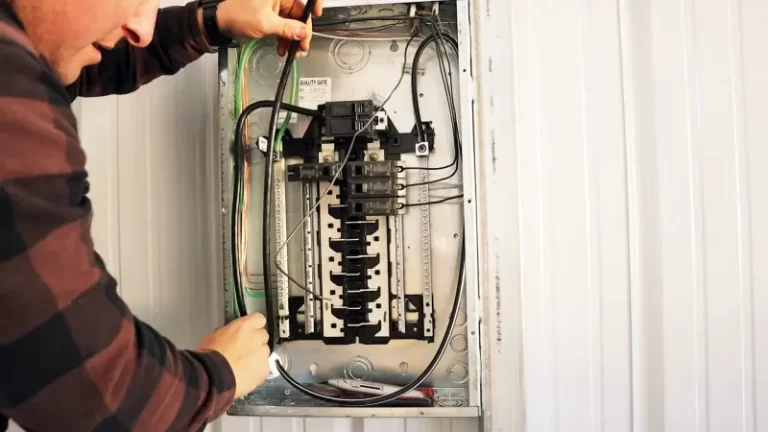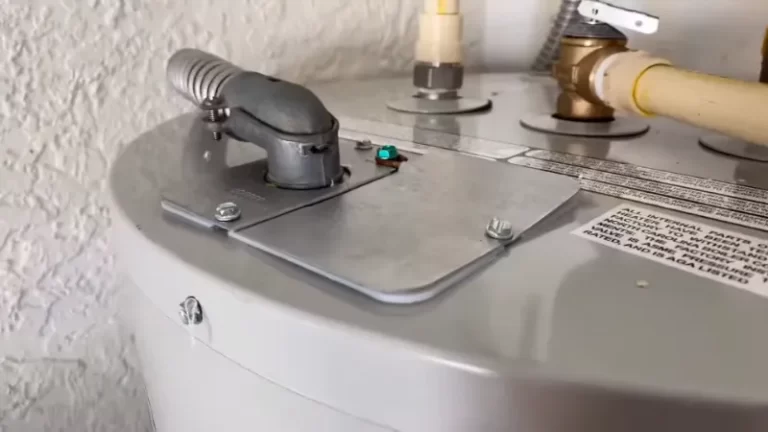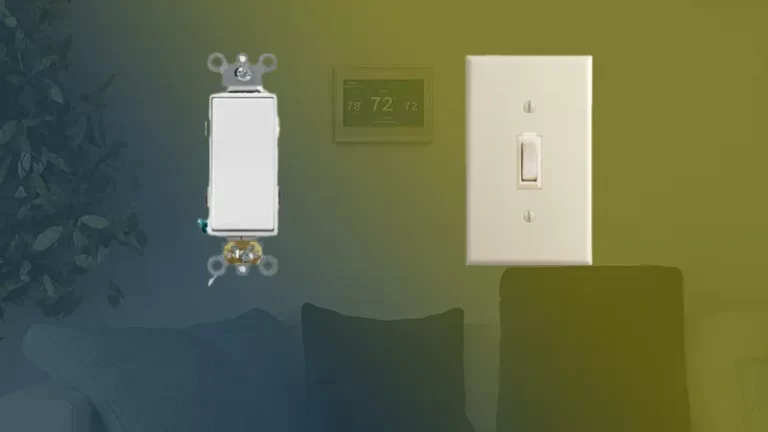Why is My Hunter Ceiling Fan Runs Slow on the Highest Setting?
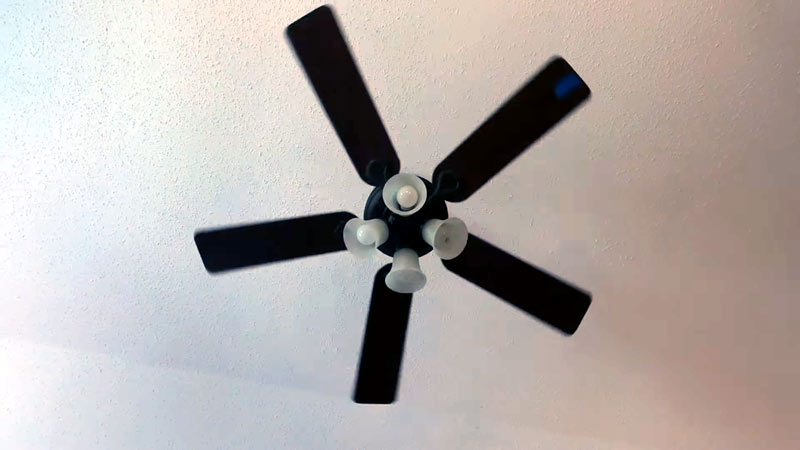
Ceiling fans are a great addition to any home, providing both cooling and circulation throughout a room. However, when a ceiling fan starts to run slowly, it can be frustrating and even dangerous if the blades are not moving fast enough.
If you have a Hunter ceiling fan that is running slow even on the highest setting, you may be wondering what could be causing this issue. In this article, we will explore some potential causes of a Hunter ceiling fan running slowly on the highest setting, as well as some steps you can take to troubleshoot and fix the problem.
You'll Learn About
Possible Causes Of Ceiling Fan Runs Slow on the Highest Setting
There are several possible causes for a Hunter ceiling fan running slow on the highest setting.
Voltage Issues
One potential cause of a slow-running fan could be voltage issues. The fan requires a certain amount of voltage to run properly, and if the electrical outlet that the fan is plugged into is not providing enough voltage, it can cause the fan to run slower than normal.
This can be caused by a number of factors, including a weak or damaged electrical circuit, a malfunctioning power supply, or a tripped breaker. To diagnose this issue, you can check the voltage at the outlet using a multimeter and compare it to the recommended voltage for the fan.
If the voltage is low, you may need to contact an electrician to fix the problem.
Wiring Problems
Another potential cause of a slow-running fan could be wiring problems. If the wiring connections are loose or there is frayed insulation, it could cause the fan to run slowly. This can happen if the fan has been installed improperly or if the wiring has been damaged over time.
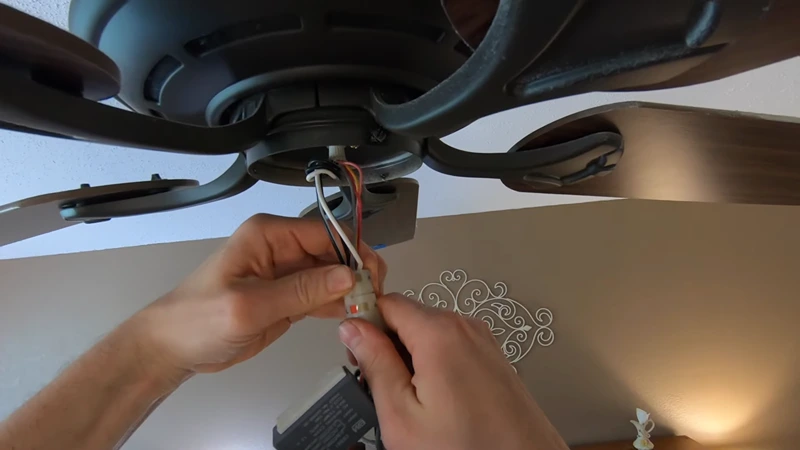
To diagnose this issue, you can inspect the wiring connections and look for any signs of damage, such as frayed insulation or loose connections. If you find any issues, you may need to contact an electrician to fix the problem.
Faulty Capacitor
A faulty capacitor could also be the cause of a slow-running fan. The capacitor is a small electronic component that helps control the speed of the fan by providing the necessary power to the motor. If the capacitor is not functioning properly, it could cause the fan to run slowly.
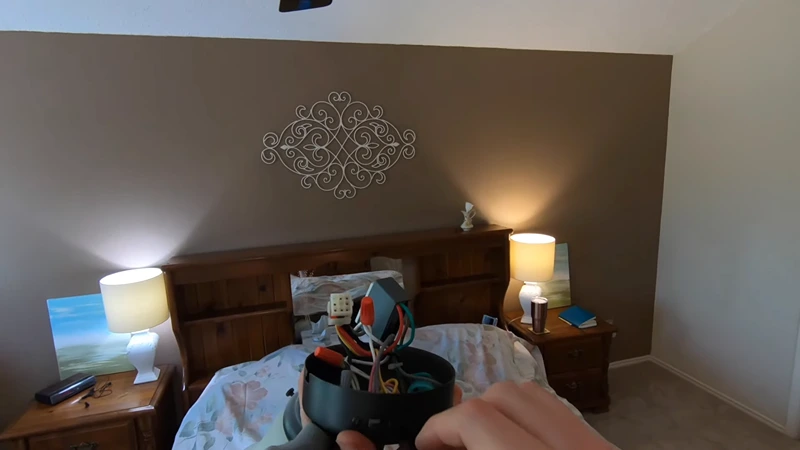
This can happen if the capacitor is damaged or has failed, which can be caused by a number of factors, including age, heat, or a power surge. To diagnose this issue, you can test the capacitor using a multimeter and compare the readings to the manufacturer’s specifications.
If the capacitor is faulty, it will need to be replaced.
Faulty Pull Chain
Another potential cause of a slow-running fan could be a misaligned or faulty pull chain. The pull chain is used to control the speed of the fan, and if it is not fully extended to the highest setting or if it is not functioning properly, it could cause the fan to run slowly.
To diagnose this issue, you can inspect the pull chain and check for any signs of damage or wear. If the pull chain is misaligned or damaged, it will need to be replaced.
Speed Control Issues
Speed control issues, such as a faulty slider or dial, could also cause the fan to run slowly. These issues can happen if the speed control mechanism is damaged or has failed, which can be caused by a number of factors, including age, heat, or a power surge.
To diagnose this issue, you can inspect the speed control mechanism and check for any signs of damage or wear. If the speed control mechanism is damaged, it will need to be replaced.
Fan Motor
Other issues with the fan motor or components could cause the fan to run slowly. The fan motor is the component that provides power to the fan blades, and if it is not functioning properly, it could cause the fan to run slowly.
This can happen if the motor is damaged or has failed, which can be caused by a number of factors, including age, heat, or a power surge. To diagnose this issue, you can test the motor using a multimeter and compare the readings to the manufacturer’s specifications. If the motor is damaged, it will need to be replaced.
Step-By-Step Troubleshooting Guide of Ceiling Fan Runs Slow on the Highest Setting
If your Hunter ceiling fan is running slow on the highest setting, there are a few steps you can take to troubleshoot and fix the problem. Here is a step-by-step guide to help you troubleshoot your slow-running ceiling fan:
Step1: Make Sure You Have A Multimeter
A multimeter is a tool that can be used to test for voltage and continuity in electrical circuits. It is a helpful tool to have when troubleshooting issues with your ceiling fan.
Step 2: Check the voltage
Make sure that the voltage coming from your electrical outlet is sufficient to power the fan. If the voltage is too low, it could cause the fan to run slowly.
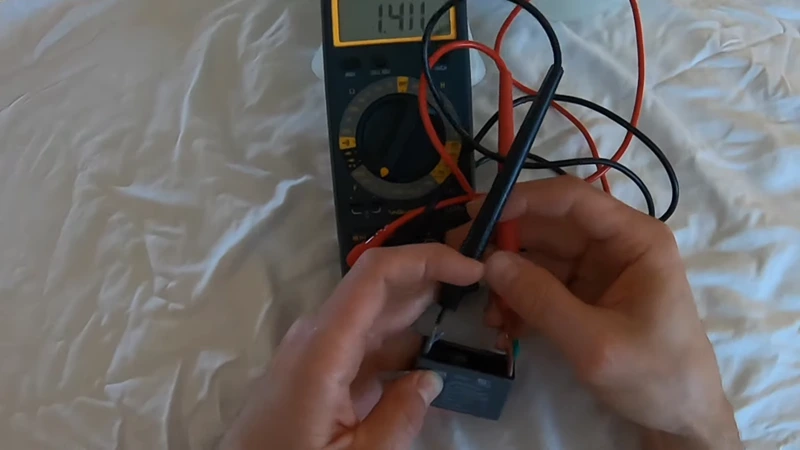
Step 3: Check the wiring
Make sure that all of the wiring connections are secure and that there are no loose wires or frayed insulation.
Step 4: Check the capacitor
The capacitor is a small electronic component that helps control the speed of the fan. If the capacitor is faulty, it could cause the fan to run slowly.
Step 5: Check the pull chain
If your fan has a pull chain to control the speed, make sure that it is fully extended to the highest setting.
Step 6: Check the speed control
Some fans have a separate speed control device, such as a slider or a dial. Make sure that the speed control is set to the highest setting.
Step 7: Check for other issues
If none of the above solutions solve the problem, it’s possible that there could be a problem with the fan motor or some other component of the fan. In this case, it may be necessary to consult the manufacturer or a professional electrician for further assistance.
Step 8: Turn Off The Power
Before attempting any repairs or maintenance on your ceiling fan, make sure to turn off the power to the circuit. This will help prevent any accidents or injuries while working on the fan
Step 9: Have A Screwdriver Handy
You may need to remove the fan blades or other components of the fan in order to access the wiring or other parts. Having a screwdriver on hand will make it easier to disassemble the fan if necessary.
Step 10: Know Where The Fuse Box Is
If you are experiencing issues with your ceiling fan, it may be helpful to check the fuse box to see if a blown fuse is the cause of the problem. Make sure you know where the fuse box is located in your home.
Optional: Consult The Manufacturer’s Manual
If you have the manufacturer’s manual for your ceiling fan, it may be helpful to refer to it while troubleshooting the issue. The manual may contain information on common issues and how to fix them.
Optional: Consider Hiring A Professional
If you are not comfortable working with electrical systems or are unable to troubleshoot the issue with your ceiling fan, it may be a good idea to hire a professional electrician. They will have the knowledge and expertise to diagnose and fix any issues with your ceiling fan.
By following these steps, you should be able to troubleshoot and fix the problem with your slow-running Hunter ceiling fan.
More Things to Check For Troubleshooting A Slow Ceiling Fan
Here are a few additional tips that may be helpful if your Hunter ceiling fan is running slow on the highest setting:
Make Sure The Blades Are Clean
Dust and debris can accumulate on the blades of a ceiling fan over time, which can cause the fan to run slower. Make sure to clean the blades regularly to ensure optimal performance.
Check The Blade Balance
If the blades of your ceiling fan are not balanced properly, it can cause the fan to run slower. You can check the balance by turning off the fan and gently pushing it. If the fan wobbles or vibrates excessively, it may need to be balanced.
Check For Loose Screws
If the screws that hold the blades in place are loose, it can cause the fan to run slower. Make sure to tighten any loose screws to ensure that the blades are secure.
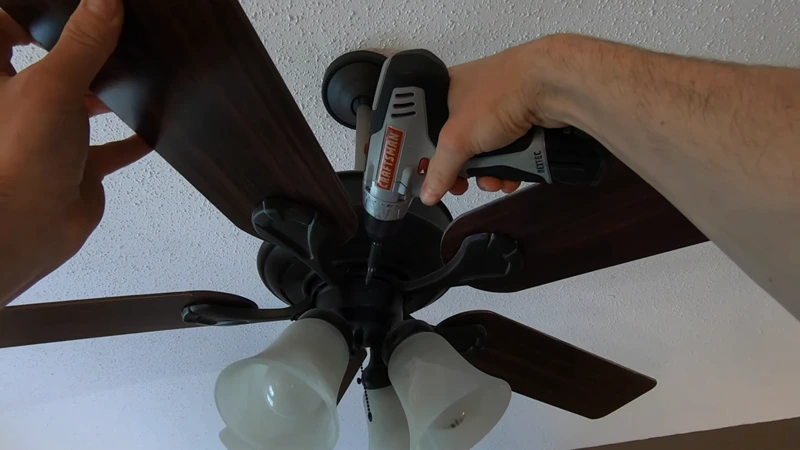
Check For Loose Mounting Hardware
If the mounting hardware for your ceiling fan is loose, it can cause the fan to run slower. Make sure to check the mounting hardware and tighten any loose screws or bolts.
Check For Loose Blades
If the blades of your ceiling fan are not securely attached to the motor, it can cause the fan to run slower. Make sure to check the blades and ensure that they are properly secured to the motor.
Check The Manufacturer’s Warranty
If your ceiling fan is still under warranty, it may be covered by the manufacturer. Check the warranty to see if it covers issues with the fan running slowly.
Check For Other Issues
If none of the above solutions solve the problem, it’s possible that there could be a problem with the fan motor or some other component of the fan. In this case, it may be necessary to consult the manufacturer or a professional electrician for further assistance.
Why Ceiling Fan Running Slowly and Humming?
There are several reasons why a ceiling fan may be running slow and humming. These include voltage issues, wiring problems, a faulty capacitor, a faulty switch, unbalanced fan blades, and a dirty or clogged fan.
Voltage Issues
One potential cause of a slow-running fan and humming sound could be voltage issues. The fan requires a certain amount of voltage to run properly, and if the electrical outlet that the fan is plugged into is not providing enough voltage, it can cause the fan to run slower than normal and produce a humming sound.
This can be caused by a number of factors, including a weak or damaged electrical circuit, a malfunctioning power supply, or a tripped breaker. To diagnose this issue, you can check the voltage at the outlet using a multimeter and compare it to the recommended voltage for the fan. If the voltage is low, you may need to contact an electrician to fix the problem.
Wiring Problems
Another potential cause of a slow-running fan and humming sound could be wiring problems. If the wiring connections are loose or there is frayed insulation, it could cause the fan to run slowly and produce a humming sound.
This can happen if the fan has been installed improperly or if the wiring has been damaged over time. To diagnose this issue, you can inspect the wiring connections and look for any signs of damage, such as frayed insulation or loose connections. If you find any issues, you may need to contact an electrician to fix the problem.
Faulty Capacitor
A faulty capacitor could also be the cause of a slow-running fan and humming sound. The capacitor is a small electronic component that helps control the speed of the fan by providing the necessary power to the motor.
If the capacitor is not functioning properly, it could cause the fan to run slowly and produce a humming sound. This can happen if the capacitor is damaged or has failed, which can be caused by a number of factors, including age, heat, or a power surge.
To diagnose this issue, you can test the capacitor using a multimeter and compare the readings to the manufacturer’s specifications. If the capacitor is faulty, it will need to be replaced.
Faulty Switch
A faulty switch could also be the cause of a slow-running fan and humming sound. The switch is used to control the power supply to the fan, and if it is not functioning properly, it can cause the fan to run slowly and produce a humming sound.
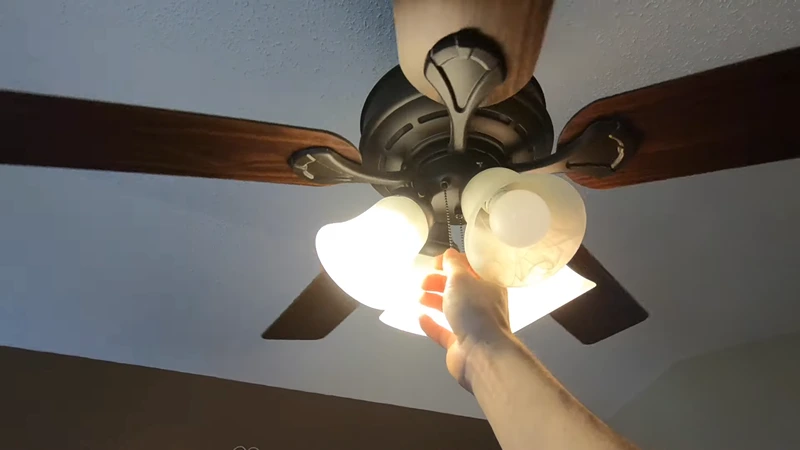
This can happen if the switch is damaged or has failed, which can be caused by a number of factors, including age, heat, or a power surge. To diagnose this issue, you can inspect the switch and check for any signs of damage or wear. If the switch is damaged, it will need to be replaced.
Unbalanced Fan Blades
Unbalanced fan blades can also cause the fan to run slowly and produce a humming sound. If the blades are not balanced properly, they can cause the fan to vibrate, which can result in a humming sound and slow operation. To diagnose this issue, you can check the blades for any signs of damage or warping, and if necessary, balance the blades.
Dirty or Clogged Fan
A dirty or clogged fan can also cause the fan to run slowly and produce a humming sound. If the fan blades or motor are covered in dust and debris, it can cause the fan to slow down and produce a humming sound as the motor struggles to turn the blades. To diagnose this issue, you can clean the fan blades and motor, removing any dust or debris that may have accumulated.
Ceiling Fan Problems, Causes, and Solutions
| Problem | Possible Causes | Solution |
|---|---|---|
| Slow-running fan | Voltage issues | Check the voltage at the outlet using a multimeter and compare it to the recommended voltage for the fan. If the voltage is low, contact an electrician to fix the problem. |
| Slow-running fan | Wiring problems | Inspect wiring connections and look for any signs of damage, such as frayed insulation or loose connections. If you find any issues, contact an electrician to fix the problem. |
| Slow-running fan | Faulty capacitor | Test the capacitor using a multimeter and compare the readings to the manufacturer’s specifications. If the capacitor is faulty, it will need to be replaced. |
| Slow-running fan | Faulty pull chain | Inspect the pull chain and check for any signs of damage or wear. If the pull chain is misaligned or damaged, it will need to be replaced. |
| Slow-running fan | Speed control issues | Inspect the speed control mechanism and check for any signs of damage or wear. If the speed control mechanism is damaged, it will need to be replaced. |
| Slow-running fan | Fan motor issues | Test the motor using a multimeter and compare the readings to the manufacturer’s specifications. If the motor is damaged, it will need to be replaced. |
To Recap
Hunter ceiling fans running slowly on the highest setting can be caused by a variety of issues, including voltage problems, wiring issues, a faulty capacitor, a misaligned or faulty pull chain, speed control issues, or other issues with the fan motor or components.
By following the troubleshooting steps outlined in this guide, you can identify and fix the specific cause of your slow-running ceiling fan. However, if the problem persists after trying these steps, it is important to consult the manufacturer or a professional electrician for further assistance.
Properly maintaining and troubleshooting your ceiling fan can help ensure that it runs smoothly and efficiently, providing you with the cooling and circulation you need for your home.

